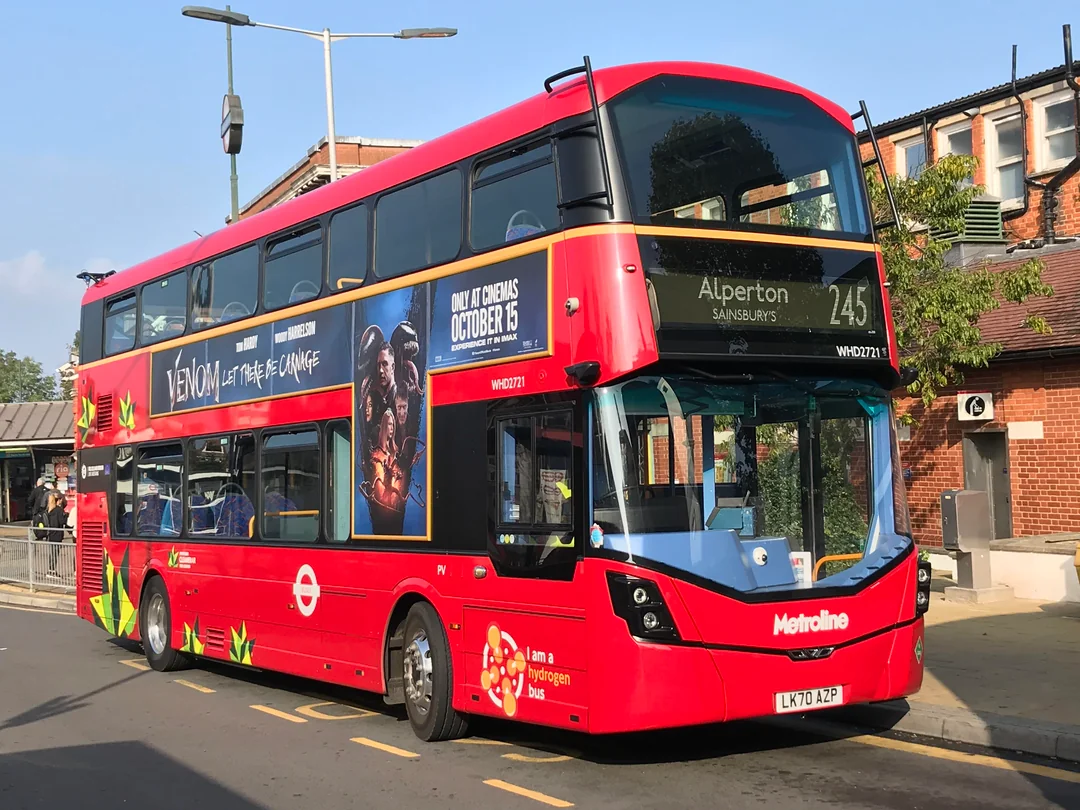Is hydrogen the future of UK transportation?
20 May 2024 by James
In the quest for cleaner, more sustainable transportation solutions, hydrogen has emerged as a promising contender, with water vapour being the only byproduct. But is it really the future of public transport in the UK?

Transport for London currently own 20 Wright StreetDeck Hydroliners, which live at Metroline's Perivale garage and serve Route 7 from East Acton to Oxford Circus.
According to Wrightbus, the Hydroliner is the world's first hydrogen double deck bus, and is an "economical, safe, and environmentally friendly vehicle that will revolutionise the industry and usher the world into a new era of transportation."
The buses can travel as far as 280 miles before needing to stop to refuel, which takes only 8 minutes from empty - that's a lot quicker than electric vehicles.

But what's the fuss with hydrogen all of a sudden? When it comes to hydrogen-powered trains, they can bring several benefits for passengers and TOCs alike:
Low environmental impact: Hydrogen vehicles produce water vapour and heat as by-products - both are harmless to the environment.
Efficiency: Hydrogen fuel cells are highly efficient, converting hydrogen gas into electricity to power the train's motors. This process is more efficient than combustion engines and results in lower energy consumption.
Flexible: Hydrogen trains can operate on railway lines where there is no electrical infrastructure, giving the same level of freedom as existing diesel trains.
Reduced Noise Pollution: Hydrogen trains are quieter than their diesel counterparts, leading to a reduction in noise pollution along rail lines, especially in urban and residential areas. This also leads to a more comfortable ride.
But there are some pretty major setbacks:
Expensive Infrastructure: Implementing hydrogen trains across the UK will require hundreds of refuelling stations, which are expensive. There's no existing grid unlike The National Grid electric trains use.
Production of Hydrogen: Producing hydrogen in an environmentally-friendly way is still more expensive than existing power sources (i.e. electric and diesel)
Safety: Hydrogen is highly flammable, and although derailments and incidents are very rare in the UK, safety must remain a top priority for passengers.
Advertisement
In 2016, Alstom announced the world's first hydrogen-powered train, the Coradia iLint - and the type entered service in Germany two years later with the state owned operator LNVG.
However, rather amusingly, LNVG announced they would purchase no more hydrogen trains - their reason being that electric trains are "cheaper to operate".
In the UK, Porterbrook, with the help of the University of Birmingham, have converted two Class 319 trains to Hydrogen-powered sets, being allocated the Class 799 'HydroFLEX'.
The first prototype, unit 799001, was tested in 2020 and made a 25-mile round trip through Warwickshire and Worcestershire.
It reached a top speed of 50mph - impressive for a first prototype, but if people are serious about hydrogen trains, they'll need to make them a lot faster to be practical for most routes.
Advertisement
To conclude, while Hydrogen vehicles seem like a promising solution to meet environmental goals, the costs currently outweigh the benefits for widespread deployment.
Comments
Please sign in or create an account to comment.
Latest articles
-
1⚠️ Global IT outage - Check before you travel ⚠️
-
2Introducing the Knowledge Hub
-
3Avanti's brand new Class 805s are here: any good or another hopeless Hitachi?
-
4Exclusive behind the scenes with an inspirational LNER train driver
-
5End of the road for London's Boris Buses as mayor reveals zero-emission plan
Advertisement
Advertisement